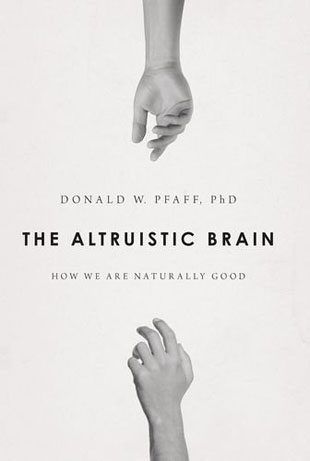"Many influential thinkers see big trouble ahead for modern human society: overpopulation, water shortages, terrorism, nuclear proliferation, energy shortages, underemployment, and the like. Consider our capacity for survival. In 1962, during Premier Nikita Khruschev's reign in Moscow and John F. Kennedy's presidency, with Russian ships steaming toward an American blockade of Cuba's nuclear missile-bearing island, these two men headed off a nuclear confrontation. Our need to survive prevailed, and these leaders figured out how. Neither man wanted to hurt his country, or others. No doubt the same has been true during less publicized episodes. I hope that we can begin to forge a new understanding of our species as we seek to continue to survive. I do not concur in Sylvia Nasar's wish that our species' Latin designation change from Homo sapiens to Homo ethicus, but I do think that the vitality of our brains moral circuitry should be acknowledged to be better than in some quarters is casually assumed.
It is important that we recognize the brain's moral proclivities, because doing so actually strengthens those proclivities. As I have argued, good character is in part the product of a powerful feedback loop: when we think better of ourselves, we try to live up to that self-estimation. In effect, if we think that we can be good members of society, we do not want to disappoint ourselves, potentially falling back into despair. Thus in this book I have tried to demonstrate just how plausible our own built-in kindness actually is, how scientifically reasonable it can be to rely on the idea that we are wired from infancy to 'do the right thing.' If the altruism built into the human brain becomes more plausible on account of our scientific understanding, then there is genuine cause for optimism notwithstanding all of our continuing challenges."
